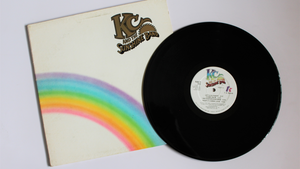Former KC And The Sunshine Band member Richard Finch wants the US Supreme Court to intervene in a slightly complicated termination rights dispute also involving his former bandmate Harry Wayne Casey.
America's top court is being asked to rule on how the termination right in US copyright law interacts with the statute of limitations for copyright claims, in this case disputed claims regarding authorship.
Finch and Casey co-wrote many songs for their band in the 1970s and set up a joint venture publishing company to manage the rights in those works. However, after the duo fell out in the early 1980s, Finch walked away from that joint venture. In a settlement deal agreed in 1983, Finch assigned all his rights - including his royalty rights and writer's share income - to Casey.
Under US copyright law, there is a termination right which says that, when a creator assigns their copyrights to another party, they have an opportunity to terminate that assignment and reclaim their rights after 35 years.
Finch has been trying to exercise that termination right for a decade now, originally hoping that the old agreement would terminate in 2018. However, it transpires, in the midst of all that Casey disputed that Finch was ever a co-writer on the songs.
This would mean that - although Finch may have received royalties from those songs back in the day - he was never actually a co-owner of the copyrights, which means there was never an assignment of rights to terminate.
Finch originally sent a notice of termination to Casey in 2012. However, that paperwork was not filed with the US Copyright Office as required. But Casey did respond, three years later in 2015, making his claim that Finch was not a co-writer on the songs. Finch then sent another notice of termination in 2019, subsequently going legal on the matter in 2021.
There is a statute of limitations for copyright disputes, and Casey has argued that - if Finch wanted to formally dispute his claim to sole authorship of the songs - he should have done so by 2018. Earlier this year both a district court and the Eleventh Circuit Appeals Court agreed that Finch did indeed have a 2018 deadline to dispute Casey's authorship claim. Successfully defeating that claim is necessary to terminate the 1983 agreement.
So, it's all a bit complicated. But, Finch reckons, both courts got it wrong. With that in mind, he is now petitioning the US Supreme Court asking it to consider "whether a time-barred assertion of sole authorship status by one co-author may, under the discovery accrual rule, form the basis for a statute of limitations affirmative defence against the other co-author's action for declaratory relief under [the termination right in copyright law]".

